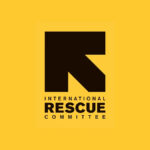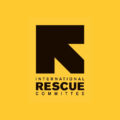
The International Rescue Committee (IRC)
Environmental Health Global Practice Lead
Job Title: Environmental Health Global Practice Lead
Location: New York, NY; Geneva, Geneva; Nairobi, Nairobi Municipality; London
Job ID: req48031
Category: Technical Units
Employee Category: Regular
Job Type: Full Time
Work Arrangement: Open to Remote
Open To Expatriates: Yes
Range Low: $125,000.00
Range High: $150,000.00
Currency: United States Dollar
Compensation: Annually
Back to Search Results
About the Company
The International Rescue Committee (IRC) responds to the world’s worst humanitarian crises, helping to restore health, safety, education, economic wellbeing, and power to people devastated by conflict and disaster. Founded in 1933 at the call of Albert Einstein, the IRC is one of the world’s largest international humanitarian non-governmental organizations (INGO), at work in more than 40 countries and more than 25 U.S. cities helping people to survive, reclaim control of their future and strengthen their communities. A force for humanity, IRC employees deliver lasting impact by restoring safety, dignity, and hope to millions. If you’re a solutions-driven, passionate change-maker, come join us in positively impacting the lives of millions of people worldwide for a better future.
IRC’s Technical Excellence
IRC’s Technical Excellence team is comprised of five teams or sector “Units” which have deep expertise in their respective fields: Education, Economic Wellbeing, Governance, Health, and Violence Prevention and Response, as well as teams which provide measurement and finance/grant management support. Technical teams are also matrixed with a team that focuses on the quality and content of cross-sectoral programming in emergency responses.
IRC’s Technical Excellence teams offer five core services to IRC country programs and the wider organization:
- Program Design: We support country and regional teams to design state-of-the-art programming, incorporating the best available evidence, cost data, and expertise of what has worked elsewhere, with the knowledge that country teams, partner organizations, and our clients bring to the table.
- Quality Assurance: We partner with our measurement teams to design and drive the use of indicators to measure progress towards outcomes; we partner with regional and country teams to review program delivery progress and help address implementation challenges and adapt interventions to changed circumstances.
- Business Development: We partner within and outside the IRC to design winning bids and identify winning consortia; we deploy technical expertise in public events and private meetings to position IRC as a partner of choice.
- Research & Learning: We partner with our research lab to design cutting-edge research to fill evidence gaps, and with country teams to learn from implementation such that we continuously improve our future design and delivery.
- External Influence: We showcase the IRC’s programs, technical insights, and learning to influence and improve the humanitarian sector’s policy and practice.
Job Overview
Position Title: Global Practice Lead, Environmental Health
Location: Remote
The Global Practice Lead, Environmental Health is the organizational leader for Environmental Health for the Crisis Response, Recovery and Development (CRRD) department and is a core member of the Health Unit’s Leadership Team. They are responsible for devising and leading strategies to raise the quality, impact, and scale of IRC’s Environmental Health programming.
Key Responsibilities
- Act as the organizational leader for CRRD in Environmental health internally and externally.
- Lead strategic direction and delivery planning for Environmental Health in line with the organizational global strategy.
- Lead the development of sustainable and scalable water solutions, mitigating the impacts of climate change on water security and human health.
- Collaborate with other Global Practice Leads to promote integrated program designs within Health, and across all IRC sectors that increase scale and deepen impact.
- Facilitate collaboration across Health, Nutrition, and EH Practice Areas on the development of climate adaptation, mitigation, and anticipatory actions.
- Lead Technical Unit-led global business development for Environmental Health and support strategic project-level proposals.
- Lead coordination with AMU to drive fundraising from Public and Institutional donors and with ER to drive fundraising from Private donors to meet the Health Unit strategic priorities related to EH.
Strategy, Program Design and Business Development
As the Global Practice Lead, you will play a pivotal role in shaping the strategic direction of IRC’s Environmental Health initiatives. Leveraging your expertise and insights, you will lead the development of innovative and impactful strategies that align with both the organization’s global strategy and the specific needs of the communities we serve. Additionally, you will drive business development efforts, identifying and pursuing opportunities to expand IRC’s presence and influence in the field of Environmental Health.
Global Practice Implementation Support
You will provide technical oversight and guidance to ensure the effective implementation of Environmental Health programs across IRC’s global operations. Working closely with regional leads and technical advisors, you will develop and refine best practices, methodologies, and tools to enhance program quality and impact. Your leadership will be instrumental in driving continuous improvement and innovation within the Environmental Health practice area.
Research, Data, Knowledge Management, and Organizational Learning
In this role, you will lead efforts to generate and disseminate knowledge, research, and evidence related to Environmental Health. By fostering a culture of learning and collaboration, you will facilitate the sharing of insights and best practices across IRC’s global network. Additionally, you will guide the development of monitoring and evaluation frameworks to ensure that programmatic efforts are effectively tracked and evaluated.
External Influence, Relationships, and Representation
As a key representative of IRC’s Environmental Health initiatives, you will engage with external stakeholders, including donors, UN agencies, NGOs, and research institutions. Through strategic advocacy and partnership-building efforts, you will position IRC as a thought leader and advocate for positive change in the field of Environmental Health. Your ability to cultivate and maintain relationships will be critical to advancing IRC’s mission and impact.
Desired Experience and Skills
- Established or growing recognition as an expert in the practice area, with a minimum of 12+ years of progressive experience.
- Demonstrated experience leading programs in fragile/humanitarian settings.
- Strong track record of driving uptake of evidence-based practice.
- Experience with sectoral strategy design and planning.
- Excellent communication, influencing, and storytelling skills.
- Excellent management and leadership skills.
- Demonstrated ability to identify and convert business development opportunities.
- Ability to influence across a wide range of diverse stakeholders.
- Ability to work, manage, and meet deadlines in a fast-paced environment.
- Superb interpersonal, written, and verbal communication skills.
- Track record of scaled innovations preferred.
- Fluency in English required; Arabic, French, and/or Spanish strongly preferred.
- Ability to travel globally up to 25% of the time.
Education
Master’s degree in environmental health, Public Health, and/or related fields or equivalent professional experience background is required. Sound training on the use of data and research evidence for programmatic decisions and rigorous analytic skills are an advantage.
Compensation
Posted pay ranges apply to US-based candidates. Ranges are based on various factors including the labor market, job type, internal equity, and budget. Exact offers are calibrated by work location, individual candidate experience and skills relative to the defined job requirements.
US Benefits
The IRC offers a comprehensive and highly competitive set of benefits. All US employees are eligible for sick time, a 403b retirement savings plan: up to 4.5% immediately vested matching contribution, plus an 3-7% additional IRC contribution, and an Employee Assistance Program which is available to our staff and their families to support in times of crisis and mental health struggles.
In addition, full-time employees are eligible for 10 US paid holidays, 20-25 paid time off days, disability & life insurance, medical, dental, and vision insurance (employee contribution starting at $135, $7, and $5 per month respectively) and FSA for healthcare, childcare, and commuter costs. Part-time employees are eligible for a proportionate amount of paid time off.
Standard of Professional Conduct
The IRC and the IRC workers must adhere to the values and principles outlined in the IRC Way – our Code of Conduct. These are Integrity, Service, Accountability, and Equality.
Commitment to Gender, Equality, Diversity, and Inclusion
The IRC is committed to creating a diverse, inclusive, respectful, and safe work environment where all persons are treated fairly, with dignity and respect. The IRC expressly prohibits and will not tolerate discrimination, harassment, retaliation, or bullying of the IRC persons in any work setting. We aim to increase the representation of women, people that are from country and communities we serve, and people who identify as races and ethnicities that are under-represented in global power structures.
JOIN OUR TALENT NETWORK
Don’t see a fit at this time?
Don’t worry. Join our Talent Network and get notified about the latest opportunities. Join Now
Follow JOBS-HUB.ORG channel on WhatsApp: JOIN NOW!
MORE JOBS
Sample Cover Letter for an Environmental Health Global Practice Lead
[Your Name]
[Your Address]
[City, State, Zip Code]
[Your Email Address]
[Your Phone Number]
[Date]
[Recipient Name]
[Hiring Manager]
[Company Name]
[Company Address]
[City, State, Zip Code]
Dear [Recipient Name],
I am writing to express my interest in the Environmental Health Global Practice Lead position at [Company Name], as advertised. With a solid background in environmental health and extensive experience in leading and implementing programs in humanitarian settings, I am confident in my ability to contribute effectively to your organization’s mission.
Throughout my career, I have demonstrated a strong commitment to driving positive change and improving health outcomes for vulnerable populations. My expertise in developing strategic plans, designing evidence-based interventions, and fostering partnerships with key stakeholders has enabled me to make significant contributions to the organizations I have worked with.
I am particularly excited about the opportunity to lead the development of sustainable water solutions and address the impacts of climate change on human health. I am passionate about leveraging innovative approaches and cross-sectoral collaborations to create lasting impact and improve the well-being of communities worldwide.
I am impressed by [Company Name]’s commitment to excellence and its dedication to serving those affected by crisis and disaster. I am eager to bring my skills, knowledge, and enthusiasm to your team and contribute to the continued success of your environmental health initiatives.
Thank you for considering my application. I look forward to the possibility of discussing how my experience aligns with the needs of your organization in more detail.
Sincerely,
[Your Name]
Possible Environmental Health Global Practice Lead Interview Questions With Answers
- Question: Can you provide an example of a successful environmental health program you led in a humanitarian setting?
Answer: Certainly. In my previous role at [Organization], I spearheaded a water and sanitation project in a refugee camp in [Location]. By implementing innovative water purification techniques and conducting community education sessions on hygiene practices, we were able to significantly reduce the incidence of waterborne diseases and improve overall health outcomes among camp residents.
- Question: How do you approach developing strategic plans for environmental health initiatives?
Answer: I believe in taking a comprehensive approach that involves assessing the specific needs and challenges of the target population, conducting thorough research to identify evidence-based interventions, and collaborating closely with stakeholders to ensure buy-in and sustainability. By combining technical expertise with a deep understanding of local contexts, we can develop strategies that are both effective and culturally appropriate.
- Question: How do you stay informed about emerging trends and best practices in environmental health?
Answer: I make it a priority to stay connected with professional networks, attend conferences and workshops, and regularly review relevant literature and research findings. Additionally, I seek out opportunities for cross-sectoral collaboration and knowledge sharing to gain insights from experts in related fields.
- Question: Can you discuss a time when you successfully advocated for policy change or secured funding for an environmental health project?
Answer: In my previous role, I worked closely with local government officials and international donors to advocate for increased investment in environmental health initiatives. By presenting compelling evidence of the impact of our programs and highlighting the importance of long-term sustainability, we were able to secure additional funding and support for our projects.
- Question: How do you approach building and maintaining partnerships with key stakeholders in the environmental health sector?
Answer: I believe in the power of collaboration and strive to build strong, mutually beneficial relationships with a wide range of stakeholders, including government agencies, NGOs, academic institutions, and community organizations. By actively engaging stakeholders throughout the project lifecycle, we can leverage their expertise and resources to maximize impact and sustainability.
- Question: How do you ensure that environmental health interventions are culturally sensitive and responsive to the needs of diverse communities?
Answer: I approach program design with a deep respect for local cultures and traditions, seeking input from community members and cultural experts to ensure that interventions are culturally appropriate and acceptable. By fostering open communication and collaboration, we can tailor our approaches to address the unique needs and preferences of diverse populations.
- Question: Can you discuss a time when you had to navigate challenging situations or overcome obstacles in implementing an environmental health project?
Answer: In one instance, we encountered logistical challenges due to limited access to remote communities affected by natural disasters. To overcome this obstacle, we collaborated with local partners and utilized innovative technology solutions to deliver essential services and resources to those in need. By adapting our approach and leveraging local expertise, we were able to successfully implement the project despite the challenges we faced.
- Question: How do you measure the impact and effectiveness of environmental health interventions?
Answer: I believe in taking a holistic approach to monitoring and evaluation, utilizing a combination of quantitative and qualitative methods to assess both short-term outputs and long-term outcomes. By collecting data on key indicators and soliciting feedback from stakeholders, we can continuously monitor progress, identify areas for improvement, and demonstrate the impact of our interventions.
- Question: What strategies do you employ to promote innovation and foster a culture of learning within your team?
Answer: I encourage open communication and collaboration, providing opportunities for team members to share ideas, experiment with new approaches, and learn from both successes and failures. By creating a supportive environment that values creativity and continuous improvement, we can harness the collective expertise and ingenuity of our team to drive innovation and achieve our goals.
- Question: How do you ensure compliance with relevant regulations and ethical standards in environmental health programming?
Answer: I prioritize adherence to ethical principles and legal requirements in all aspects of program design and implementation. This includes conducting thorough risk assessments, obtaining necessary approvals and permits, and ensuring that interventions are carried out in a manner that respects the rights and dignity of affected individuals and communities. Additionally, I stay abreast of changes in regulations and guidelines to ensure ongoing compliance and accountability.
We wish you the best in your application process! If you don’t see a fit at this time, don’t worry. Join our Talent Network and get notified about the latest opportunities. Join Here
We are committed to attracting and retaining the best employees from all races and backgrounds in our continued effort to become a better development partner. We are an equal employer and do not charge any application/recruitment fee, whether refundable or not.
To apply for this job please visit $125,000.00%20-%20%20$150,000.00.







